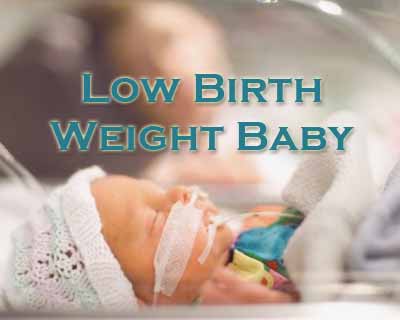- Home
- Editorial
- News
- Practice Guidelines
- Anesthesiology Guidelines
- Cancer Guidelines
- Cardiac Sciences Guidelines
- Critical Care Guidelines
- Dentistry Guidelines
- Dermatology Guidelines
- Diabetes and Endo Guidelines
- Diagnostics Guidelines
- ENT Guidelines
- Featured Practice Guidelines
- Gastroenterology Guidelines
- Geriatrics Guidelines
- Medicine Guidelines
- Nephrology Guidelines
- Neurosciences Guidelines
- Obs and Gynae Guidelines
- Ophthalmology Guidelines
- Orthopaedics Guidelines
- Paediatrics Guidelines
- Psychiatry Guidelines
- Pulmonology Guidelines
- Radiology Guidelines
- Surgery Guidelines
- Urology Guidelines
Low Birth Weight Ups Type 2 Diabetes Risk

New York : Children born with low birth weight due to genetic factors are at increased risk of developing Type 2 diabetes, finds a new study.
The findings showed that the low birth weight was actually causing excess risk in Type 2 diabetes.
"A genetically lowered birth weight was associated with increased susceptibility to Type 2 diabetes," said Tiange Wang from Tulane University in the US.
Low birth can cause restricted intrauterine growth (foetal growth) a condition in which an unborn baby is smaller than it should be because it is not growing at a normal rate inside the womb.
Further, this restricted foetal growth also represents a risk factor for the low birth weight and in turn causing the Type 2 diabetes.
Risk factors for restricted intrauterine growth include malnutrition, anaemia, infections and placental insufficiency.
"Our findings support a potential causal relation between birth weight and risk of Type 2 diabetes, providing novel evidence to support the role of intrauterine exposures in the pathogenesis of type 2 diabetes," Wang added.
Evidence from both population and experimental studies has suggested that restricted early life development has long-term structural and functional influence on individuals' predisposition to an increased risk of metabolic diseases such as Type 2 diabetes, said the paper published in the journal Diabetologia.
The study included 3627 Type 2 diabetes cases and 12,974 controls.
The team created a genetic risk score (GRS) based on five low birth weight-related genetic variations known as single nucleotide polymorphisms (SNPs).
The analysis showed that for each one point increase in GRS (with the score ranging from 1-10), the risk of developing Type 2 diabetes increased by six per cent.

Disclaimer: This site is primarily intended for healthcare professionals. Any content/information on this website does not replace the advice of medical and/or health professionals and should not be construed as medical/diagnostic advice/endorsement or prescription. Use of this site is subject to our terms of use, privacy policy, advertisement policy. © 2020 Minerva Medical Treatment Pvt Ltd